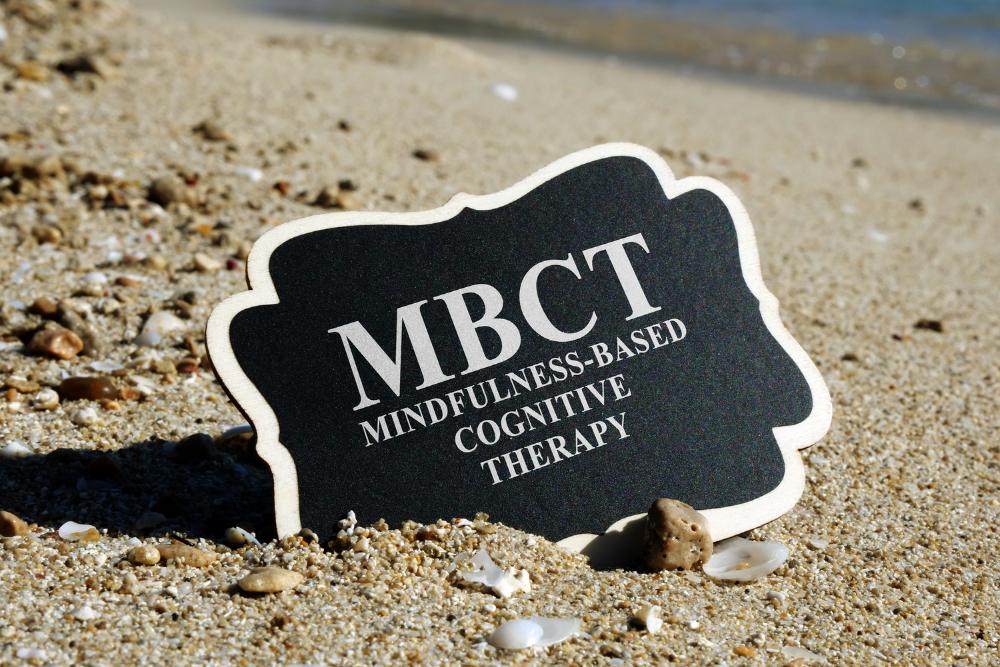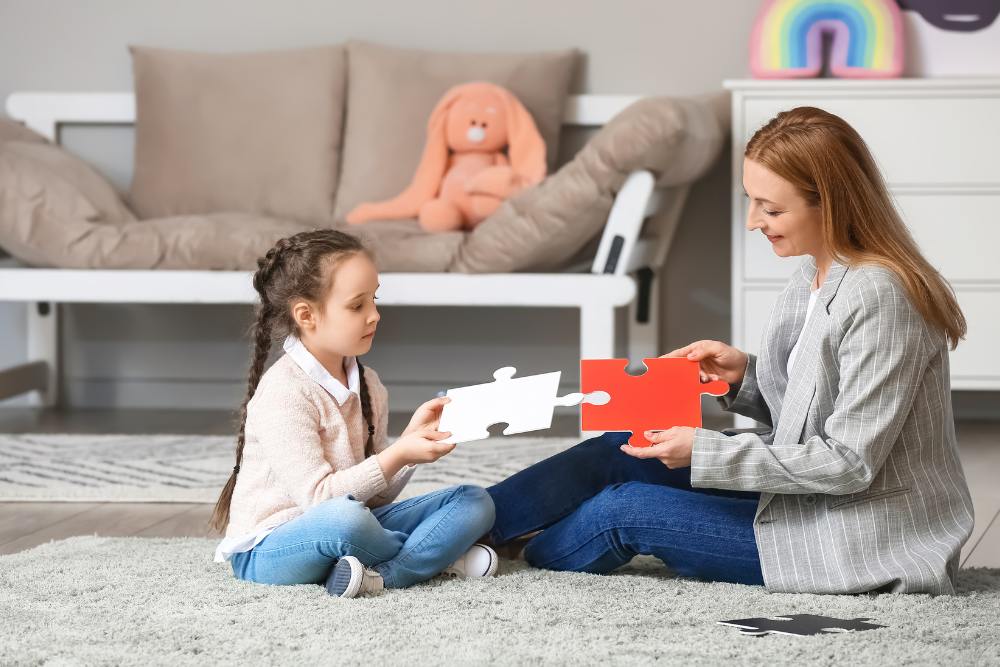One of the common issues that causes a patient to seek out therapy is depression,…

Emotion-Focused Family Therapy
Emotion-Focused Family Therapy
If you are looking for a therapist or are trying different therapy methods, you may have heard of emotion-focused therapy or emotion-focused family therapy. This form of therapy explores and deals with the emotions or reactions you may be experiencing, and can be used to treat a number of different issues. Read on to learn more about this particular approach, and hopefully determine whether or not it is right for you.
What Is Emotion-Focused Therapy?
Emotion-focused therapy, or EFT, as it is often called, is a type of therapeutic approach. It mainly focuses on the idea of emotions being important to identify and believes that these emotions are guides for individual choice and decision-making in a person. Hence, this approach also believes that a lack of emotional awareness, or trying to avoid difficult emotions can be harmful. It makes a person unable to utilize the information that our emotions provide us with.
Those who are trained in EFT are able to treat patients with a number of different concerns or issues, as this approach can be applied to many different situations. For instance, a therapist may use EFT to help someone learn to be more aware of their emotions or to help them learn to improve at using the information that is supplied by adaptive emotions. Those who go through emotion-focused therapy may also improve their abilities to cope with, as well as decrease, the negative effects of maladaptive emotions.

History of Emotion-Focused Therapy
For the most part, Emotion-focused therapy was developed by Leslie Greenberg. He actually did not set out intentionally to develop a new therapeutic approach but was instead simply trying to study how people change. The research took place over 3 decades, with the first related materials being published in 1979.
EFT draws from some of the principles of cognitive behaviour, person-centred, and Gestalt therapies. In addition to these, the approach uses some of the aspects of Piaget’s studies on how people solve problems. It can also reference systemic interactional perspectives if used to treat more than one person– like a couple, for instance.
Benefits of Emotion-Focused Therapy
Emotion-focused therapy, as mentioned above, can be used to treat many different things. This is because it targets our emotions and how we deal with them, and emotions are tied to so many thought processes which can cause us harm– or do us good! It is also true that unsuccessful efforts to control emotions are what often bring a person to therapy.

EFT was first used to treat depression. A person who is suffering from depression may try to avoid situations that may affect their mood or may spend a lot of effort avoiding people, places, or things that could be depressing or cause anxiety. With emotion-focused therapy, though, a person is taught to view emotions as valuable sources of information, instead of difficult states of being. They will learn to experience their emotions instead of suppressing them.
Besides depression, this therapeutic approach can also be used to treat issues such as childhood abuse or neglect, eating disorders, anxiety, borderline personality, and interpersonal issues. In addition to these, it has also been shown to help couples who are in distress and experiencing issues in their relationship.
How Does Emotion-Focused Therapy Work?
There are a few techniques that are key in the EFT approach, and therapists usually focus on developing an acceptance of one’s emotions, as well as then learning to assess the emotions and better use the emotions in order to avoid negative or harmful reactions. In therapy sessions, a therapist will listen and question with a non-judgemental and reflective approach. This also helps to make a person more comfortable during their sessions, making it easier to open up more.
A therapist will use therapeutic techniques that are referred to as emotion coaching. These techniques are tools that help a person learn different ways to use healthy emotions to guide their actions. This approach can assist in further transforming a person and moving on from challenging emotions or reactions.
Early sessions will focus on arriving at emotions– such as becoming more aware of emotions or learning to welcome and regulate them– while later sessions will focus on leaving. This is seen by evaluating whether emotions are helpful or unhelpful in a situation, or learning to change these unhelpful emotions, among other goals. When a person begins to have an improved ability to regulate emotions, for instance, EFT is seen as having been successful.

EFFT for Teens and Young Adults
Helping Teens and Young Adults Heal Through Emotion-Focused Family Therapy
Navigating the emotional world of adolescence and young adulthood can be challenging—not just for teens and young adults, but for their families as well. Emotion-Focused Family Therapy (EFFT) is a powerful approach that helps families strengthen their relationships by addressing emotions at the core of conflicts and disconnection.
Rather than simply managing behaviors, EFFT focuses on understanding, validating, and responding to emotions in a way that fosters healing and resilience.
By creating a safe space for open communication, this therapy empowers both parents and young people to rebuild trust, improve emotional regulation, and deepen their connections, leading to lasting positive change.
How Does EFFT Help Teens?
How Emotion-Focused Family Therapy (EFFT) Helps Teens
Emotionally Focused Family Therapy helps teens by addressing the emotional roots of their struggles, rather than just focusing on surface-level behaviors. Many teens experience anxiety, depression, self-doubt, or difficulty expressing their emotions, which can lead to conflict at home and challenges in other areas of life. EFFT provides a supportive framework for both teens and their families to navigate these emotional challenges together. Teenage mental health support and therapy can go a long way to helping teenagers navigate this challenging season.
Key Ways EFFT Supports Teens:
✅ Helps Teens Feel Heard & Understood – Many teens struggle to communicate their emotions especially during family therapy, leading to frustration and isolation. EFFT teaches families how to listen with empathy and validate their teen’s feelings.
✅ Improves Emotional Regulation – Teens often feel overwhelmed by their emotions but lack the tools to manage them. This type of family therapy provides strategies to identify, process, and express emotions in a healthy way.
✅ Strengthens Family Relationships – By improving emotional communication, EFFT reduces conflict and fosters deeper connections between teens and their caregivers.
✅ Empowers Teens to Heal & Grow – Whether a teen is dealing with anxiety, depression, self-esteem issues, or past trauma, emotionally focused family therapy helps them feel supported in their healing process and more confident in their ability to navigate life’s challenges. It can also help with communication with other family members and various children’s mental health challenges that surface in teenage and young adult years.
By addressing emotions at the core of struggles, emotionally focused family therapy helps teens develop emotional resilience, stronger relationships, and a greater sense of self-worth—all crucial for long-term well-being.
How Does EFFT Help Young Adults?
How Emotion-Focused Family Therapy (EFFT) Helps Young Adults
Young adulthood is a time of transition, self-discovery, and growing independence, but it can also bring emotional struggles, relationship challenges, and unresolved family dynamics. Emotionally Focused Family Therapy helps young adults and their families navigate this stage by fostering emotional awareness, healing past wounds, and strengthening communication. Therapy and counselling for young adults can be a significant part of helping young people navigate this transitional season.
Key Ways EFFT Supports Young Adults:
✅ Helps Process Unresolved Family Dynamics – Many young adults carry emotional wounds or patterns from childhood that continue to impact their relationships and mental well-being. EFFT helps them work through these issues in a safe and supportive way.
✅ Improves Emotional Communication – Whether struggling with self-expression, setting boundaries, or handling conflict, EFFT teaches young adults and their families how to communicate with empathy, openness, and respect.
✅ Encourages Emotional Independence & Self-Regulation – As young adults move toward greater independence, learning to manage emotions effectively is key. EFFT helps them develop skills to navigate stress, anxiety, and life transitions in a healthy way.
✅ Strengthens Family Support – Even as young adults become more independent, family connections remain important. EFFT helps families build healthier, more supportive relationships that evolve with the young adult’s changing needs.
By focusing on emotions as the foundation for healing and connection, EFFT empowers young adults to navigate challenges with greater confidence, emotional resilience, and stronger relationships—both within their family and beyond.
Lionheart Therapists that Incorporate EFFT
| Lindsay Huculak | Dr. Raechelle Paperny | Kristin Boettger | |
| Danelle Spence | May Melnyk | Joanna Card | |
| Tasha Belix | Talia Zink |
Frequently Asked Questions
What is emotion-focused therapy theory?
Emotion-focused therapy is founded on the idea, or theory, that emotions are key to identity. This therapy approach also believes that emotions are a guide for individual choice and decision-making in a person. Therefore, if a person lacks emotional awareness, or avoids difficult emotions, it can lead to harm for them and for others that whom they may come into contact.
Similar to attachment-based family therapy, EFFT focuses on strengthening bonds through emotional connection. Attachment style therapy can go a long way to helping people understand why they respond the way they do, and EFFT can help them to process emotions in real time so they can respond appropriately.
What are the 3 goals of emotion-focused interventions?
Emotion-focused therapy focuses on the tenets of strengthening the self, regulating effect, and then creating new meaning. There are also 3 phases to this therapy approach, which are de-escalation, restructuring interactions, and consolidation. These can often be used in an emotion-focused intervention, too. Mental health difficulties, family distress and anxiety can be treated and provide you with a significant emotional resolution.
What is emotion-focused parenting?
Emotion-focused parenting is an approach that mirrors emotionally focused therapy, focusing on understanding and managing emotions rather than controlling behaviors. It involves tolerating and exploring your child’s big emotions instead of trying to suppress or fix them. Like attachment theory, emotion-focused parenting emphasizes the importance of secure emotional bonds between parents and children.
Instead of merely containing reactions, this method encourages parents to understand why their child is feeling a certain way and help them navigate those emotions in a healthy way. By addressing and transforming problematic parenting patterns and responding with empathy, parents can support their children in expressing their feelings, which promotes better family relationships and emotional development. It also provides support for parents as they learn how to manage their own emotions in these interactions, creating a healthier family process overall.
Marital and family therapy often go hand in hand when helping teens and young adults with their mental health. The stronger the marital relationship is, the more equipped parents will be to help their kids. Emotionally focused couples therapy can also help in this regard and support parents to address mental health issues. Family life doesn’t have to be chaotic, and with the right tools and strategies, therapy like this can support parents in their efforts to not only address mental health issues but have a healthy functioning family unit.
What are the techniques of emotionally focused therapy?
Emotion-focused therapy utilizes 3 key techniques with its patients. These techniques are cycle de-escalation, changing interaction patterns or restructuring interactions, and consolidation and integration.
Emotionally Focused Family Therapy (EFFT) emphasizes the importance of parent-child relationships and aims to help families strengthen secure family patterns. With its focus on healthy caregiving instincts, EFFT helps most parents refine their exceptional clinical skills, improving their ability to support children who may be struggling. Through specific family interventions, such as the two-chair intervention aimed at fostering emotional connection, EFFT works within family systems to create lasting change and heal emotional wounds. This approach recognizes that children struggling need caregivers who can provide both support and structure, empowering families to reconnect and heal together.



